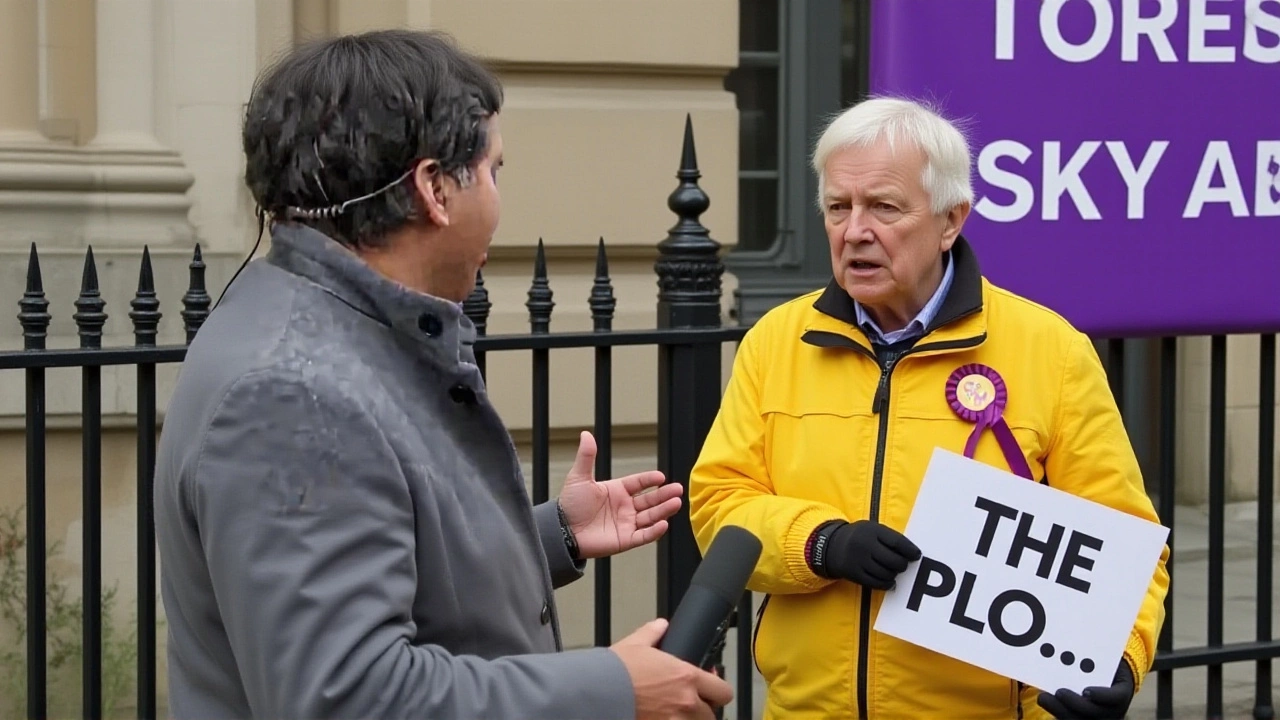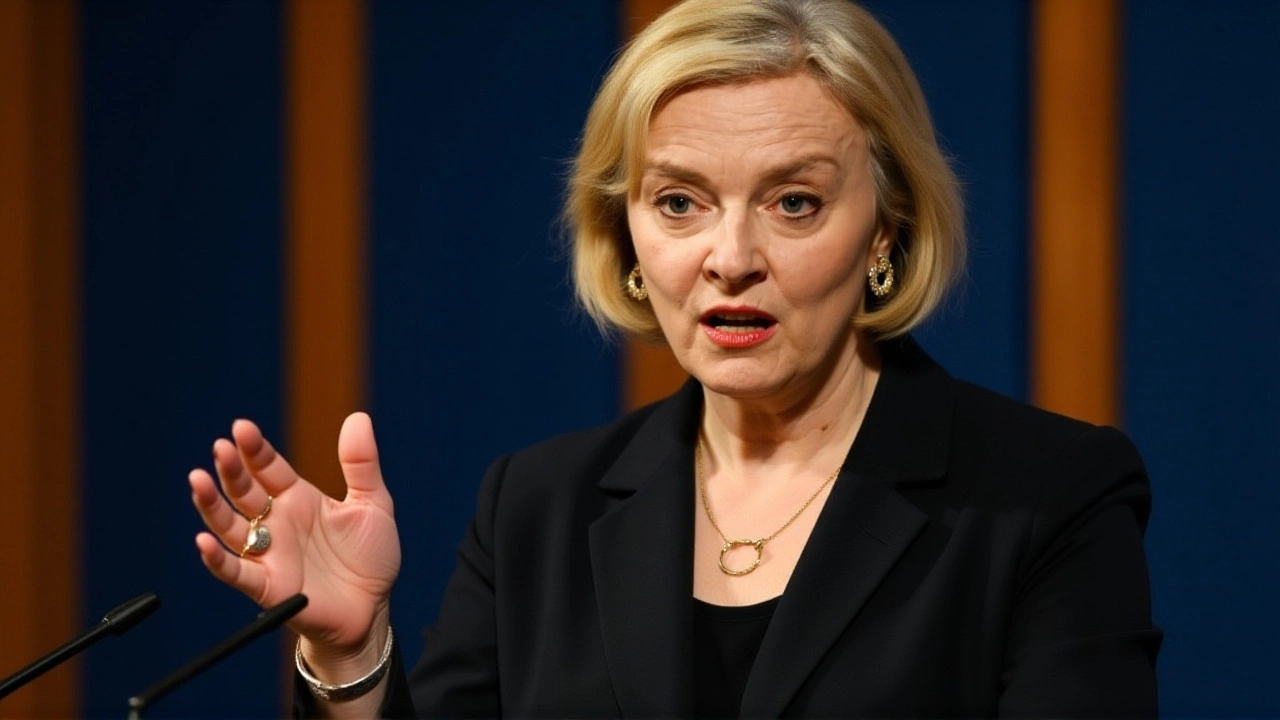When Liz Truss stepped out in front of 10 Downing Street on October 20, 2022, at 1:35 p.m. BST, she didn’t just hand in her resignation — she ended the most spectacular political implosion in modern British history. After just 44 days in office, Truss became the shortest-serving prime minister the UK has ever had. Her departure wasn’t forced by scandal or scandalous leaks. It was self-inflicted. A botched economic plan, a cabinet in chaos, and a party that lost faith — all in the space of six weeks. The markets didn’t just react. They panicked. And the public? They didn’t just disapprove. They felt betrayed.
The Mini-Budget That Broke Britain
It started with ambition. Truss, elected Conservative leader on September 5, 2022, promised a bold, low-tax revolution. Her chancellor, Kwasi Kwarteng, unveiled a ‘mini-budget’ on September 23 that included unfunded tax cuts: scrapping the 45% top income rate, reversing a corporate tax rise, and eliminating the cap on bankers’ bonuses. The message? Growth through deregulation. The reality? Financial chaos. The pound plunged to a 37-year low. Pension funds nearly collapsed. The Bank of England had to step in with emergency bond-buying to prevent a systemic meltdown. Within days, the government reversed course. But the damage was done. Markets had lost trust. Voters had lost patience.A Cabinet in Freefall
Truss’s leadership style was ruthless. She appointed only loyalists — people who had backed her in the leadership race. Anyone who questioned her? Considered an enemy. That left her with a shallow bench. By mid-October, she had fired Kwasi Kwarteng as chancellor and Suella Braverman as home secretary — both within 50 days of taking office. No sitting PM in modern times had lost two senior cabinet members so fast. The 1922 Committee, the powerful group of backbench Conservatives, saw the writing on the wall. On October 20, just before noon, its chair, Sir Graham Brady, met with Truss. He told her flatly: ‘I don’t think so, Prime Minister.’ She didn’t fight it. She resigned.Why She Lasted as Long as She Did
You’d think she’d have been ousted sooner. But there was no clear successor. Rishi Sunak, her rival in the leadership race, had resigned as chancellor over the mini-budget — but he hadn’t declared his intention to return. Other potential candidates were either too damaged, too reluctant, or too divided. So the party held its breath. Truss clung on, hoping someone would emerge. But by Friday, October 21, Sunak was the only one left standing. The Conservative Party fast-tracked the leadership vote. MPs chose a new leader in under a week. Sunak was elected unopposed on October 25 and sworn in by King Charles III — the same monarch who had appointed Truss just weeks earlier.
The Fallout: A Nation in Shock
The political aftershocks were immediate. Labour, led by Sir Keir Starmer, surged in the polls — some surveys showed a lead of over 30 points. Starmer called for an immediate general election. But legally, the next vote wasn’t due until January 2025. Still, the Conservatives’ credibility was in tatters. The Atlantic Council summed it up: ‘These are difficult days for the United Kingdom, which has in a few short weeks lost its reputation for both political and financial stability.’Truss’s Final Days — and Her Fate
Truss remained prime minister until Sunak’s appointment. Then she vanished from the spotlight. She took her seat on the backbenches, rarely speaking in Parliament. Her political identity had been erased by her own policies. In the 2024 general election, she lost her seat in South West Norfolk — a seat she’d held since 2010. The woman who once promised to ‘change Britain’ ended up being changed by it.
Lessons From a Collapse
Truss’s downfall wasn’t just about tax cuts. It was about how power was wielded. She ignored the warning signs. She sidelined experienced ministers. She treated policy like ideology, not governance. Her ‘Thatcherite’ persona — all grit and defiance — rang hollow when families were choosing between heating and eating. The cost of living crisis didn’t need tax breaks for the wealthy. It needed relief. She gave them the opposite.And here’s the bitter truth: she wasn’t alone. The Conservative Party had spent years chasing a fantasy of deregulation and tax cuts as a cure-all. Truss didn’t invent that idea. She just executed it with disastrous speed and zero consultation. The result? A government that collapsed faster than a house of cards in a storm.
Frequently Asked Questions
Why did Liz Truss’s tax cuts cause a financial crisis?
Her government’s September 2022 mini-budget proposed £45 billion in unfunded tax cuts, including scrapping the top income tax rate and removing the cap on bankers’ bonuses. Investors feared unsustainable borrowing amid soaring inflation and energy prices. The pound dropped 3.5% against the dollar in a single day, and long-term gilt yields spiked to 4.8% — the highest since 2008. The Bank of England had to intervene with emergency bond purchases to prevent pension funds from failing.
How did Sir Graham Brady influence Truss’s resignation?
As chair of the 1922 Committee — the group of Conservative backbench MPs — Brady held the power to trigger a leadership challenge. On October 20, he met Truss and told her bluntly she couldn’t survive. His words were the final signal that her support had evaporated. Without his endorsement, no minister or MP would risk backing her. He didn’t force her out — but he made it clear she had no path forward.
Why was Rishi Sunak chosen so quickly as her successor?
Sunak was the only viable candidate left. He’d resigned as chancellor in protest over the mini-budget, giving him moral credibility with voters and MPs. Other contenders — like Penny Mordaunt and Boris Johnson — either lacked support or were too tainted by past scandals. The Conservative Party rushed a one-week vote to restore stability. Sunak ran unopposed because no one else could unite the party.
What impact did Truss’s tenure have on the Labour Party?
Labour’s polling lead jumped from 10 to over 30 points in just weeks. The collapse of Conservative economic credibility made Labour’s message — ‘stability, competence, fairness’ — resonate. Keir Starmer didn’t need to attack Truss; her policies did it for him. The public saw Labour as the only party capable of restoring order, especially after the chaos of the mini-budget and the Queen’s death.
Could Truss have survived if she’d acted sooner?
Possibly. If she’d reversed the tax cuts within 72 hours of the market reaction — instead of waiting 10 days — she might have contained the damage. But her ideological rigidity and refusal to consult senior ministers made her blind to the warning signs. By the time she reversed course, trust was gone. Reputation doesn’t recover in a week.
What does Truss’s resignation mean for the future of the Conservative Party?
It exposed a deep fracture: between ideological purists and pragmatic conservatives. The party now faces a choice: return to fiscal responsibility and moderation, or keep chasing populist tax cuts that alienate the middle class. With Sunak at the helm, the direction is shifting — but internal divisions remain. Truss’s legacy isn’t just her 44 days. It’s the warning she left behind.
